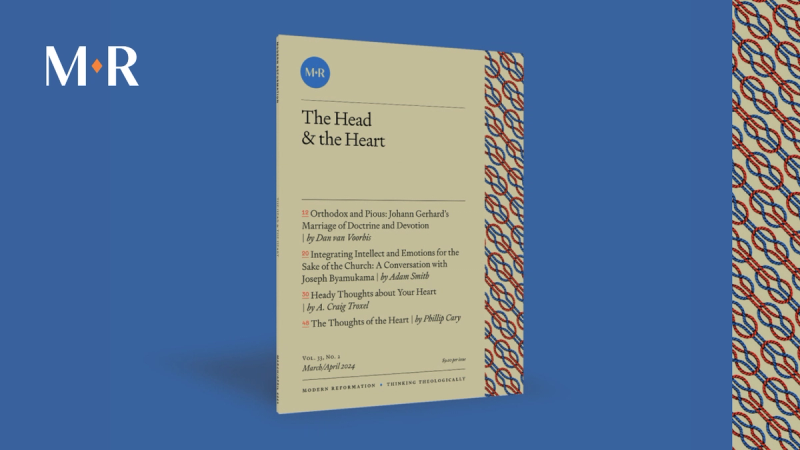Imagine you’re asking two friends for counsel in making a difficult decision. “Now, carefully think this through,” one friend cautions with a wagging finger, while the other jabs you in the ribs and winks. “Nah, just go with your gut!”
This scene reflects an all-too-common false choice between considering humans as basically either thinking beings (a stereotypically modern sensibility) or feeling beings (a more postmodern sensibility). People who prioritize intellect privilege reason and argumentation; others who prioritize feelings put the emphasis on passion and experience. Our two friends become an angel on one shoulder and a devil on the other—while we endlessly debate which one is giving us better advice.
Often, we assume that the best way to break the stalemate between our heads and our hearts is to somehow relate these wholly separate realities properly within ourselves. In order to get the angel and the devil to play well together, one of them has to be in charge. Should cool heads prevail, or shall we follow our hearts?
Well, biblically speaking, we’ve already asked the wrong question because the Bible doesn’t ask us to choose between the head and the heart, or even ask us to properly relate them. The Bible simply doesn’t separate the head and the heart like we do. Indeed, we’ve titled this issue “The Head and the Heart” intentionally to put our finger on the crux of the matter: if you come to this issue thinking they’re separate and leave feeling the same way, then we haven’t done our job.
In the Bible, the intellect, will, and emotions are all capacities that belong to the whole, integrated person. The thinking, desiring, feeling center of who we are is simply called our “heart” (and sometimes spirit or soul or mind).
When Jesus perceived their thoughts, he answered them, “Why do you question in your hearts?” (Luke 5:22)
Delight yourself in the Lord, and he will give you the desires of your heart. (Ps. 37:4)
A joyful heart is good medicine, but a broken spirit dries up the bones. (Prov. 15:13)
So, if we want to speak like the Bible does, we shouldn’t force thinking and feeling to compete for centrality in our lives or assume they belong to separate domains until we bring them together.
Human thinking and feeling operate in concert, for good or ill. At their worst, they drive us into unreasonable outbursts or self-justifying indifference. At their best, they perform in beautiful harmony, as we see supremely in Jesus. He thought everything through with utmost passion, and he reasoned skillfully in pursuing holy zeal. His thinking, feeling, and willing were perfectly aligned for our salvation and as our example—his heart beating in unison with his Father’s and with ours.






